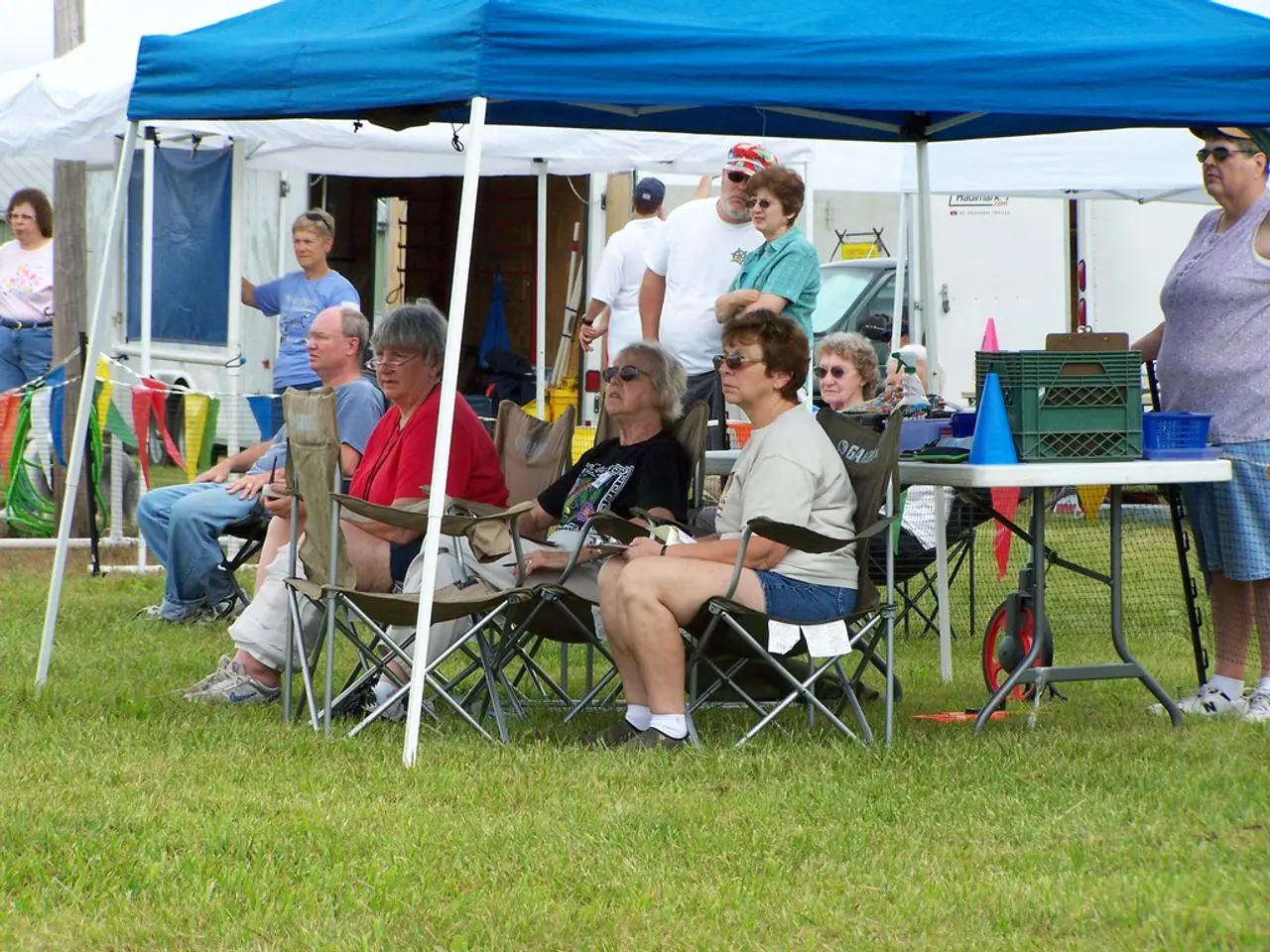City officials offer advice for managing intense summer heat conditions, particularly emphasizing the need to look out for senior citizens in the heat.
In the midst of the scorching summer heat, it's crucial to prioritise heat protection measures. Here are some tips to help you beat the heat and stay safe.
Firstly, it's recommended to drink at least 1.5 to 2 liters of fluids daily, preferably water, unsweetened tea, or diluted fruit juices. Regular hydration, even without feeling thirsty, is essential for maintaining optimal body functions.
The art cafe "Einblick", located on Alte Heerstraße 16, is doing its part by offering free water for both humans and animals on hot days. Café manager Brigitte Albrecht encourages others to follow their example and place a jug of water and a few cups in front of their storefront.
Sun protection is another vital aspect of heat protection. In direct sunlight, sun protection and a head covering are necessary. To keep the heat out of one's own four walls, it is recommended to ventilate early in the morning and late in the evening.
Physical exertion should be shifted to the cooler morning or evening hours. Loose-fitting, light clothing made of cotton or linen supports heat regulation.
Engineering controls, administrative practices, and personal cooling methods also play a significant role in heat protection. Engineering controls include using automation and mechanical aids to reduce physical exertion, improving ventilation systems, and providing cooled observation booths or rest areas for workers exposed to intense heat.
Administrative controls and practices involve implementing acclimatization programs, providing frequent rest breaks in shaded or cool areas, making water stations or coolers accessible and plentiful throughout the workplace, and educating employees about heat-related illnesses.
Personal cooling methods include wearing light-colored, loose-fitting clothing, using cooling sprays, wetting clothing or skin to enhance sweat evaporation, cooling pulse points such as wrists and ankles by immersing them in cool water, and wearing personal cooling gear like phase-change cooling vests or evaporative neck wraps.
During the hot daytime hours, windows and roller shutters should remain closed as much as possible. Whoever stays in the shade additionally relieves the circulation. The city administration reminds that special caution applies in vehicles: Children and animals must never be left in the car in the heat - not even for a short time.
The water dispenser in front of the town hall has been defective for some time, but further information on heat protection can be found at www.kaarst.de/hitze. Symptoms such as dizziness, headaches, or severe fatigue can indicate overheating and should be taken seriously.
Lastly, the city of Kaarst encourages people to pay attention to older residents in the neighbourhood and offer help if needed. The city park and Kaarster See in Kaarst offer shady retreats for those seeking respite from the heat.
By following these tips and practices, we can all ensure a safer and more comfortable summer for ourselves and our communities.
Other measures for maintaining health-and-wellness during the summer heat include incorporating therapies-and-treatments like CBD, known for its potential stress-relieving properties.
Moreover, workplace-wellness activities such as promoting fitness-and-exercise programs, mental-health workshops, and health-and-wellness seminars could help employees cope with the stress of the heat.
It's also important to consider mens-health and womens-health, ensuring proper skin-care routines are followed to protect against sun damage, and addressing specific health concerns related to each gender.
Proper nutrition can also play a role in combating the effects of heat. Foods rich in electrolytes and fluids can help maintain hydration levels, and choosing light, nutritious meals can aid in heat regulation.
Lastly, as we age, our bodies become less efficient at regulating body temperature. It's crucial to take extra precautions, such as avoiding extended exposure to the sun and ensuring adequate hydration, to protect the health of older individuals during the summer heat.




